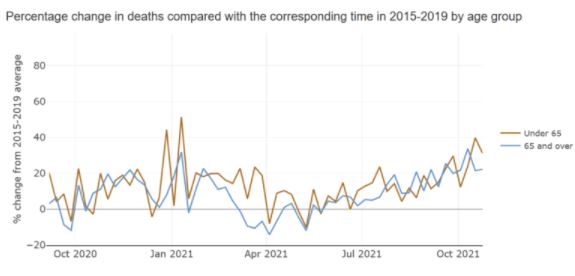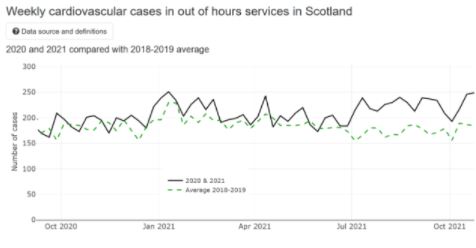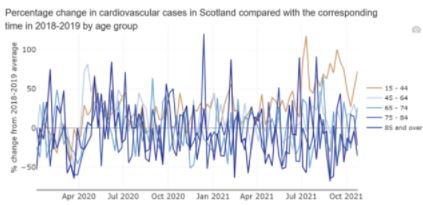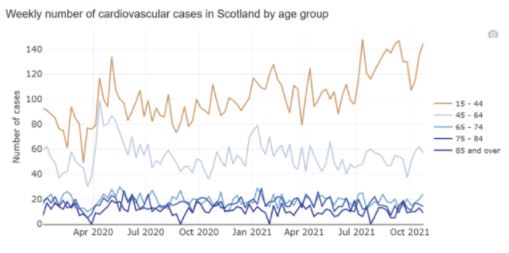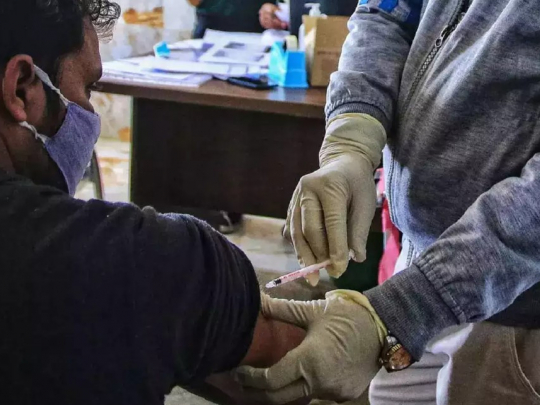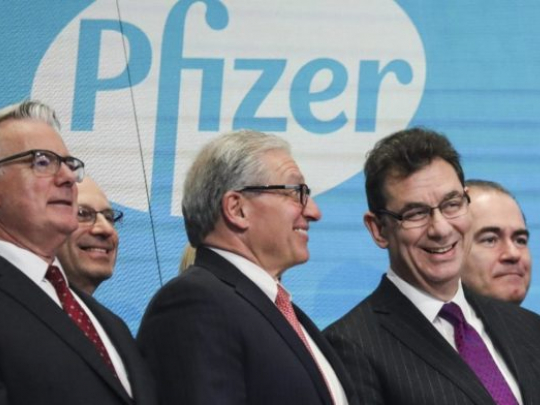Study finds Covid Vaccines increase the risk of Heart Attack by 127%
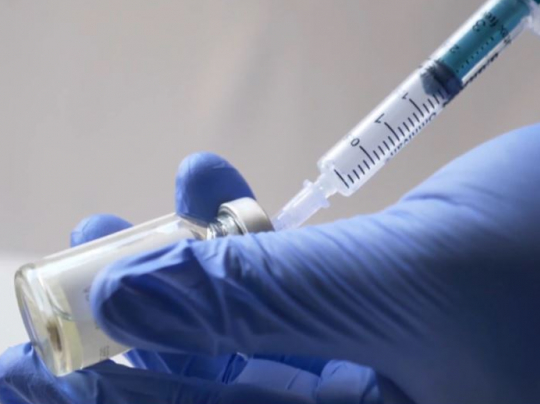
Heart attacks are an inflammatory condition, and a new study suggests the mRNA injections produced by both Pfizer and Moderna are raising inflammatory blood markers used to estimate the risk of a person suffering a heart attack.
The new higher markers hint that in the study group of 500 patients, the 5 year risk of a heart attack has doubled, from 11% to 25%.
Dr Aseem Malhotra, a consultant cardiologist, points out that in the UK there have been 10,000 excess non-Covid deaths — many of which were due to heart attack and stroke. If the mRNA vaccines were increasing the risk of heart attacks, even temporarily, this would explain some of the excess deaths. Inflammation might be temporary, but death usually isn’t.
A few days after these ominous results came out, a whistleblower and researcher from a different group contacted Dr Aseem Malhotra to say that in imaging studies they have found inflammation in the coronary arteries after vaccination. But they decided not to publish this yet because they are afraid of losing future grant money from the drug industry. The whistleblower was quite upset about this. Understandably.
Malhotra also mentions that he’s heard from other medical workers that there has been an increase in heart attacks in the UK, and in younger people.
Dr Malhotra mentions results from the “Steven Gundry paper”. Gundry’s group has used a standard test to predict the risk of heart attacks in their patients for the last eight years. But they noticed that some of the blood markers they were looking for in the test were significantly higher after the second mRNA vaccination dose.
We conclude that the mRNA vacs dramatically increase inflammation on the endothelium and T cell infiltration of cardiac muscle and may account for the observations of increased thrombosis, cardiomyopathy, and other vascular events following vaccination.
The blood markers they use in the PLUS Cardiac Test (GD Biosciences) include inflammatory molecules like Interleukin-16 (IL-16), as well as other like soluble Fas, and Hepatocyte Growth Factor (HGF). People at risk of cardiac arrest would typically get measured every 3 – 6 months.
Gundry’s group followed 566 people both before and after their second vaccination to see how the PULS score changed. Strikingly many of the markers doubled. Frustratingly, the paper is a preprint and unfortunately only available as an abstract for now.
But there are plenty of reasons to conclude that markers like IL-16 are not just a proxy for heart risk, but actively involved in it.
Further evidence available from Scotland also supports the findings of the study.
Figures available from Public Health Scotland show that excess deaths in Scotland have been on the rise since the middle of May 2021, despite a huge decline in Covid-19 deaths, with the under 65’s seeing up to a 40% increase in the number of deaths against the five-year-average.
But further statistics go some way to explaining the increase in deaths among younger adults, because data on cardiovascular related health issues shows that some weeks since May 2021, have seen up to a 118% increase in the number of cardiovascular cases among 15-44-year-olds, and up to a 72% increase in the number of cardiovascular cases among 45-64-year-olds.
The above chart which can be accessed on the Public Health Scotland ‘COVID-19 wider impacts on the health care system’ dashboard, shows that excess deaths have increased among all age groups. But surprisingly, the biggest increase has been among the under 65’s, with the age group registering a 40% increase against the five-year average in the week ending October 17th 2021.
Scotland has also seen a significant increase in the number of cardiovascular cases in out of hours services since around June 2021.
The above chart shows the weekly number of cardiovascular cases in ‘out of hour services’ during 2021 compared to the 2018-2019 average, and it clearly demonstrates something went drastically wrong from June onwards, and seems to show that cases are increasing even further against the expected rate.
A further breakdown on the above data by age group also shows that the highest number of cardiovascular cases are occurring among 15-44-year-olds.
The above chart shows that cardiovascular cases in ‘out of hour services’ among 15-44-year-olds were 118% higher than the 2018-2019 average in the week ending 11th July 2021, with the most recent week showing an increase 73% higher than the expected rate as of October 24th 2021.
Cardiovascular cases among the next age bracket have also increased, with 45-64-year-olds registering a 47.4% increase in the number of cardiovascular cases against the historic average in the week ending August 8th.
Teens and younger adults also top the league in terms of the number of cardiovascular cases in ‘out of hour services’ with 148 cases occurring in the week ending July 11th, 147 cases occurring in the week ending September 12th, and 145 cases in the week ending October 24th.
This compares to 48, 54, and 57 cases occurring among 45-64-year-olds during the same weeks, with the over 65’s registering no more than 29 cases per age group throughout the whole of 2021.
The data shows that these deaths cannot be attributed to Covid-19, and further data shows that 15-44-year-olds have suffered a horrendous increase in the number of cardiovascular incidents during the same time frame.
With blood clots, myocarditis and pericarditis being known potential adverse reactions to the Covid-19 injections; the latter occurring mainly in younger adults and teens, and a sudden increase in professional athletes suffering cardiac issues during 2021, alongside dozens of news articles confirming parents, young adults and teens suddenly dying it doesn’t take a genius to work out that the common denominator in all these events is the experimental Covid-19 injections, especially now that a new scientific study suggests the Covid vaccines increase the risk of suffering a heart attack by 127%.
- Source : The Expose UK




